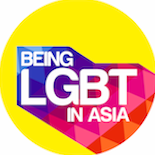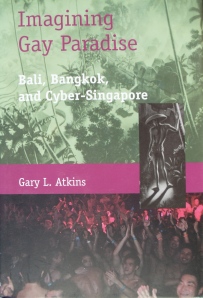India has disappointingly returned to the ranks of nations that not only criminalize gay sex, but do so using an antiquated, vague legal definition of “carnal intercourse against the order of nature” imposed by the colonial British in 1861.
 The section of the penal code involved, Section 377, is the same that has been at recent issue in other former British colonies in Asia including Singapore, Malaysia, and Myanmar/Burma. In fact, Section 377’s wording and numbering was either adopted directly or served as the model for criminalizing homosexuality in more than 30 of the roughly 70 nations that still do so. In India, as in Burma, the section makes sex “against the order of nature” punishable with 10 years in prison. Other nations add even more extreme punishment. Malaysia’s Section 377 specifies up to 20 years imprisonment along with whipping.
The section of the penal code involved, Section 377, is the same that has been at recent issue in other former British colonies in Asia including Singapore, Malaysia, and Myanmar/Burma. In fact, Section 377’s wording and numbering was either adopted directly or served as the model for criminalizing homosexuality in more than 30 of the roughly 70 nations that still do so. In India, as in Burma, the section makes sex “against the order of nature” punishable with 10 years in prison. Other nations add even more extreme punishment. Malaysia’s Section 377 specifies up to 20 years imprisonment along with whipping.
The Delhi High Court had struck Section 377 down in 2009 in the case of Naz Foundation v Govt of NCT of Delhi. The Delhi decision decriminalized homosexual acts between consenting adults, saying the law was a violation of principles of equality, freedom of speech, and privacy. But the new decision came after religious groups challenged the Delhi court ruling. The Supreme Court overturned the Delhi ruling, basically saying that only Parliament can repeal the law.
In both of my books, Gay Seattle: Stories of Exile and Dwelling and Imagining Gay Paradise: Bali, Bangkok and Singapore, I wrote about how anti-gay governments use sodomy laws not just to punish individuals but also as an imaginative technique for creating a “landscape of fear” aimed at regulating the consenting sexual activities of all citizens. (That term I take from the noted geographer Yi-Fu Tuan, who wrote an entire book by the title of Landscapes of Fear).
“Even if the police only infrequently use the law,” I noted in Gay Seattle, “an accusation of sodomy provides the cornerstone of the sexual imagination that considers all homosexuals as criminals, either because they desire forbidden sex or because they have already had it. As such the law is the foundation for an expansive set of discriminations – for who would want a sexual lawbreaker as a police officer, a teacher, a mother, or a legislator?”
In Gay Paradise, I wrote about Singapore’s trinity of laws that regulated sex: not only the sodomy 377 section, but an add-on 377A from Nazi-inspired fears that criminalized any form of “gross indecency” among men, including almost any sort of touch, hugging, or kissing; and, as if that wasn’t enough, an additional Section 354 the outlawed any “outrage of modesty” of another due to a suggestion of sex or a light touch. On top of those were laws regulating public assemblies and private associations.
Some of us in the West have perhaps grown a bit complacent about our brothers and sisters in those 70+ nations that still create these landscapes of fear with sodomy and what might be called pseudo-sodomy laws. We’re too busy celebrating our new rights to marry. The India Supreme Court ruling needs to be a wake up call for all of us to find new ways to help those who are still struggling to win the most basic of rights – which now includes all the LGBTI folks in the worlds second most populous nation.
For the text of the India Supreme Court ruling in Suresh Kumara Koushal v. NAZ Foundation, click: Suresh-Kumar-Koushal-Vs-Naz-Foundation
 Today, surfing around the international cyber-LGBT world, I came across a truly impressive social media effort in Asia that’s being funded by the UN Development Program (UNDP) and the USAID program. It’s called “Being LGBT in Asia” and while it has the usual accounts you would expect on Facebook, Twitter, and Instagram (as well as key Chinese social networks QQ, Weibo and Douban) here’s is what is really impressive: Being LGBT in Asia also has a page on Crowdmap where anyone can report violence or verbal harassment in locations all across Asia using a smartphone, email, a tweet or a web form.
Today, surfing around the international cyber-LGBT world, I came across a truly impressive social media effort in Asia that’s being funded by the UN Development Program (UNDP) and the USAID program. It’s called “Being LGBT in Asia” and while it has the usual accounts you would expect on Facebook, Twitter, and Instagram (as well as key Chinese social networks QQ, Weibo and Douban) here’s is what is really impressive: Being LGBT in Asia also has a page on Crowdmap where anyone can report violence or verbal harassment in locations all across Asia using a smartphone, email, a tweet or a web form.


